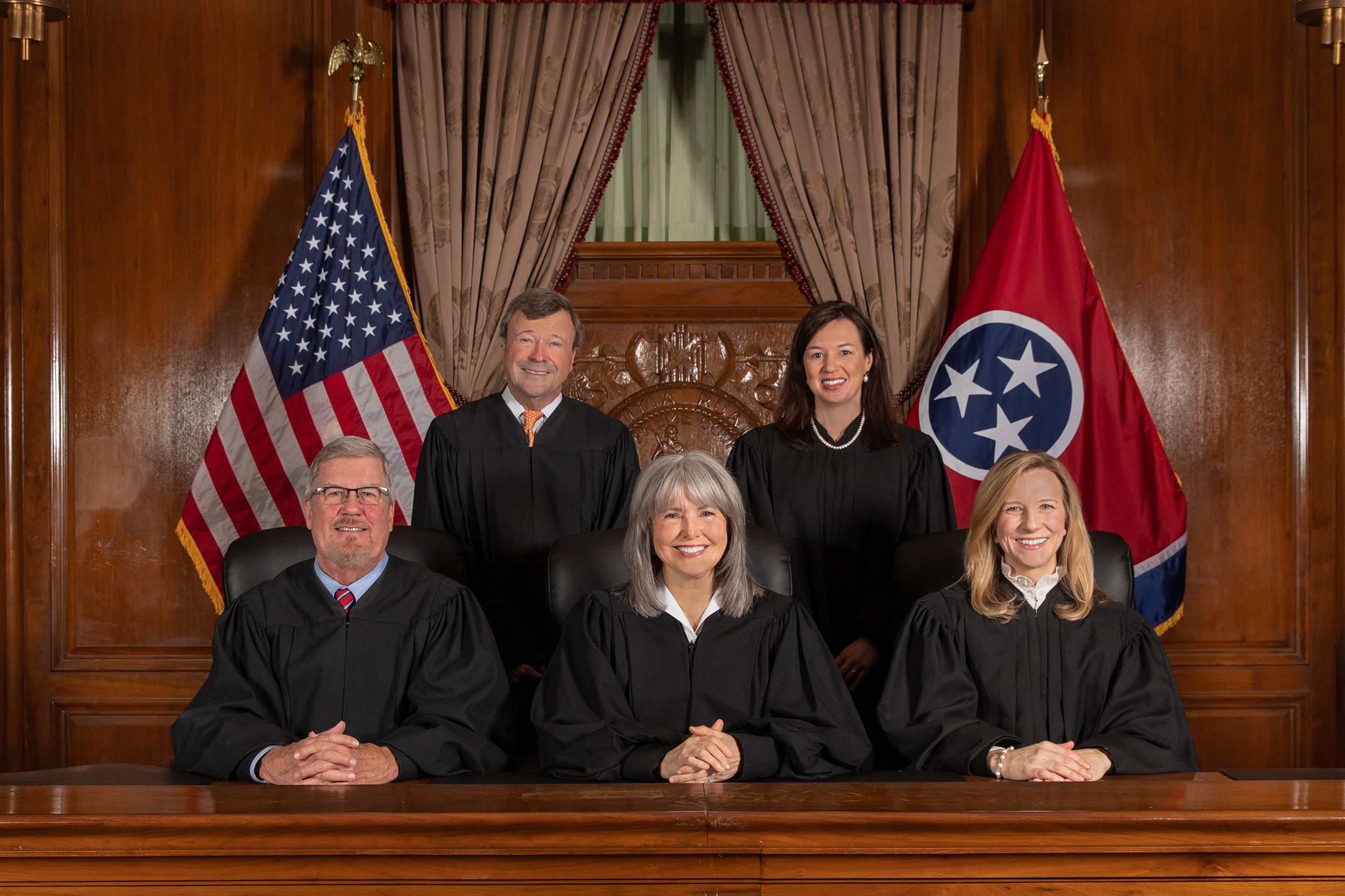
(L-R): Chief Justice Jeffrey S. Bivins, Justice Dwight E. Tarwater, Justice Holly Kirby, Justice Mary L. Wagner, Justice Sarah K. Campbell
The Tennessee Supreme Court is the state’s court of last resort. The five Supreme Court justices may accept appeals of civil and criminal cases from lower state courts. They also interpret the laws and constitutions of Tennessee and the United States. The Supreme Court may assume jurisdiction over undecided cases in the Court of Appeals or Court of Criminal Appeals when there is special need for an expedited decision.
Attorneys may request to present oral arguments before the Supreme Court. Unlike trials in lower courts, there are no witnesses, juries, or testimonies in the Supreme Court. After Supreme Court justices have heard oral arguments and reviewed the attorneys’ written materials, or briefs, they issue written decisions, known as opinions. Tennessee Supreme Court opinions on federal constitutional issues can be appealed only to the United States Supreme Court, which may or may not agree to consider the appeals.
The Supreme Court normally meets in Jackson, Knoxville, and Nashville, as required by the state constitution. However, the court may also meet in alternate locations as necessary. A few times a year, the Supreme Court takes their oral arguments on the road as part of the SCALES program (Supreme Court Advancing Legal Education for Students). The SCALES program gives Tennessee high school students the unique opportunity to hear Supreme Court oral arguments and learn more about the judicial process.
Supreme Court
401 Seventh Avenue North
Nashville, TN 37219-1407
(615) 253-1470
www.tncourts.gov
